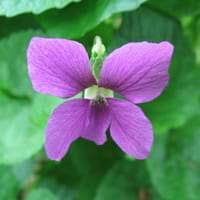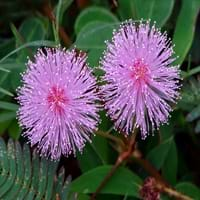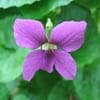Color
Blue, White, Yellow
Lavender, Orange, Purple, Red, White, Yellow
Color Meaning
Blue - Peace and Serenity, White - Purity and Innocence, Yellow - Happiness and Friendship
Orange - Satisfaction and Passion, Pink - Sensitivity and Love, Purple - Elegance and Pride, Unknown, Unknown, Unknown, Unknown
Line
Not Available
Not Available
Silhouette
Not Available
Not Available
Blossom Texture
Not Available
Not Available
Form
Not Available
Not Available
Sunlight
Part Sun
Full Sun
Watering
Diligently
Diligently
Type of Soil
Well-drained
Loamy
Essential Fertilizers
Nitrogen, Phosphorus, Potassium
Lime stone, Sulphur
Common Pests and Diseases
List of Pests
Aphids, Japanese beetles, Mealybugs, Spider Mites, Whiteflies
Unknown, Unknown, Unknown
List of Diseases
Bacterial leaf spot or blast, blight, Crown gall rot, Nematodes, Powdery Mildew, Root Rot, Rust
Unknown
Bloom Time
Spring Season
All Summer Season, Fall Season, Spring Season
Origin
Northern Hemisphere
Africa, Asia, Europe, North America
Interesting Facts of
- The hair on the leaves of African Violets absorbs water from the air.
- In 1892, Baron Walter von Saint Paul discovered this plant and thus named after him.
- The Rose comes in various colors, although a "black rose " is not literally black but a dark red.
- A single rose suggests utmost devotion while two rose entwined together says "Marry me".
Lifespan
Biennials - completes its life cycle in two years
Annuals - complete its full life cycle in one growing season
Uses
Not Available
Not Available
Health Benefits
Good for liver and gallbladder, reduce stomach pain and cramping, Used for indigestion and constipation
Unknown, Unknown, Unknown, Unknown, Unknown, Unknown
Medicinal Uses
Acts as an anti-inflammatory, It has anti-bacterial and anti-fungal properties, It has anti-septic properties
Unknown, Unknown
Culinary Uses
Added in candies, Used as flavor food in deserts and ice creams, Used in jam, jelly, marmalade, Used in salads, soups and sandwiches, Used in teas
Unknown, Unknown, Unknown, Unknown, Unknown, Unknown
Cosmetic Uses
Best for Dry sensitive skin, Best for Healing, Used in Perfumes
Best for Healing, Unknown, Unknown, Unknown, Used after facial and cleansing, Unknown, Unknown, Unknown
Occasional Uses
Anniversary, Decoration
Anniversary, Valentine's Day, Wedding
Scientific Name
Viola
Rosa
Sub kingdom
Tracheobionta
Tracheobionta
Super Division
Spermatophyte
Spermatophyte
Division
Magnoliophyta
Magnoliophyta
Order
Violales
Not Available
Class
Magnoliopsida
Unknown
Family
Violaceae
Not Available
Sub Family
NA
Not Available
Genus
Not Available
Not Available
Number of Species
Not Available
Not Available
Violets and Mimosa color
Violets and Mimosa come in variety of colors. Every color tells a different story. Let’s know about Violets and Mimosa color meaning in this section. For example Red - Courage, Desire and Love, Pink - Sensitivity and Love,Yellow - Happiness and Friendship, Orange - Satisfaction and Passion, Purple - Elegance and Pride, Blue - Peace and Serenity, White - Purity and Innocence, Green - Prosperity and Optimism. Violets is Heart in shape and has NA fragrance whereas Bowl shaped Mimosa has Citrus fragrance.
More facts about Violets and Mimosa
You must be eager to know more facts about Violets and Mimosa. Did you know Violets has originated in Northern Hemisphere while Mimosa has originated in Africa, Asia, Europe, North America. One of the Interesting Facts about Violets and Mimosa is that they can survive almost in pots.
Violets and Mimosa Uses
Benefits of flowers are universally known. Let’s know about Violets and Mimosa uses in this section. Violets and Mimosa have many medicinal properties. Besides, Violets is given on special occasions like Anniversary, Decoration whereas Mimosa on Anniversary, Valentine's Day, Wedding. Violets and Mimosa also have many culinary benefits.
Learn about Violets and Mimosa Family classification
Flowers classification makes their study easier. Plants sharing same association are grouped together. Let’s learn about Violets and Mimosa Family classification here. Violets and Mimosa belong to Plantae. They are further divided in Spermatophyte super division and Magnoliophyta division. This way, different flowers can be organized in a systematic format.





